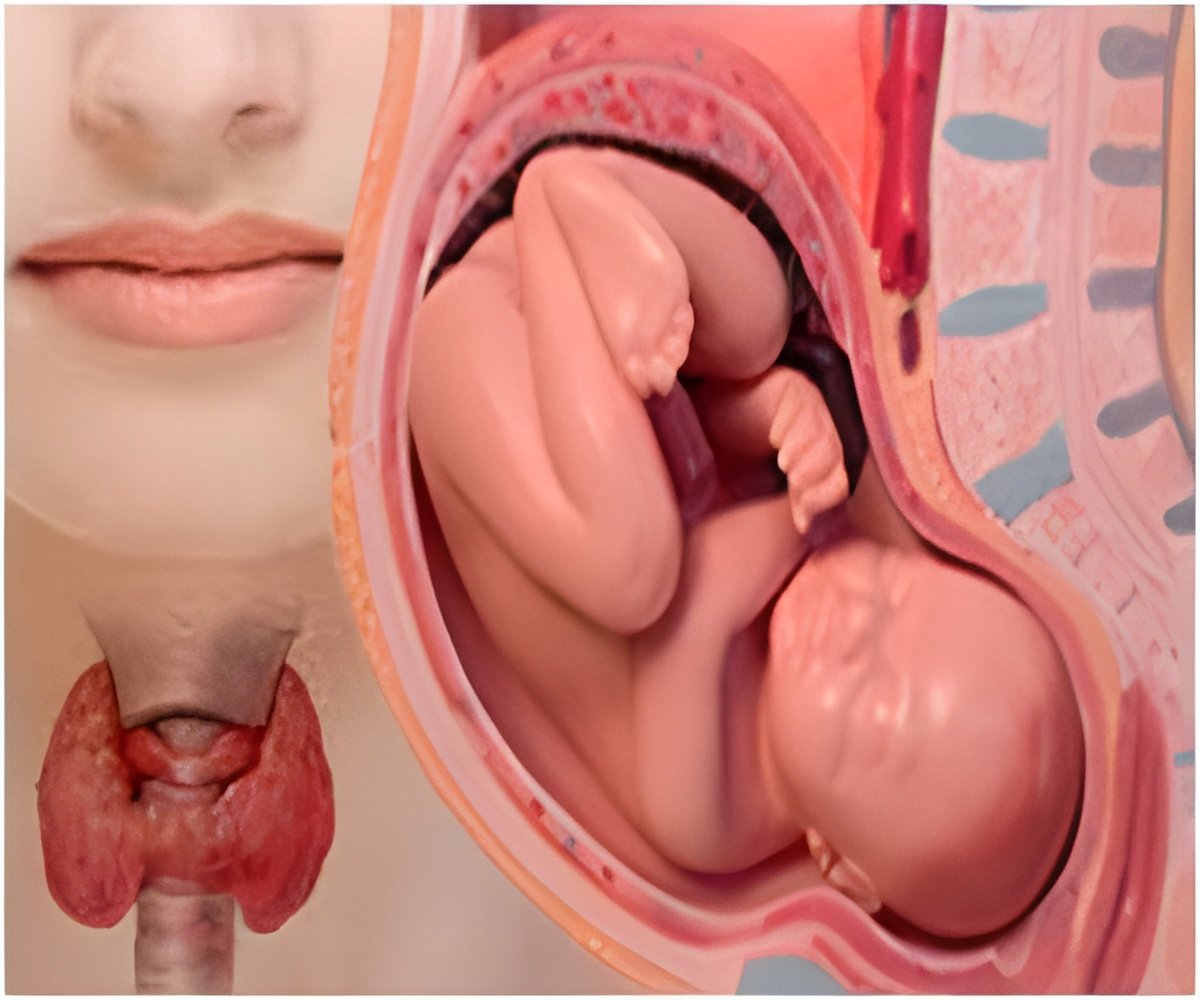Pregnant women with thyroid disorders face an increased risk of preterm birth and other pregnancy-related complications, finds study published in JCEM.

"In the United States, at least 80,000 pregnant women each year have thyroid diseases," said the study's lead author, Tuija Mnnist, MD, PhD, of the National Institutes of Health's Eunice Kennedy Shriver National Institute of Child Health and Human Development (NICHD). "These women are at increased risk of having serious adverse pregnancy outcomes, including hypertension and preterm birth. They also have a higher rate of labor inductions and other birth interventions."
The retrospective cohort study analyzed electronic medical records and 223,512 pregnancies where a single child was born to determine the rate of complications among women with thyroid conditions. The data was taken from the Consortium on Safe Labor study performed from 2002-2008. The study found women who had thyroid conditions were more likely to develop preeclampsia and tended to be admitted to the intensive care unit more frequently. Women with hypothyroidism, the most common thyroid disease in pregnancy, also were more likely to develop gestational diabetes and had a higher rate of cesarean delivery.
"Women need appropriate thyroid hormone levels to support a healthy pregnancy, so it is very important to carefully monitor expecting mothers who have thyroid diseases," said one of the study's authors, Pauline Mendola, PhD, of the NIH's NICHD. "We also need more research to identify ways to reduce the risks these women currently face."
The Endocrine Society's clinical practice guidelines for managing thyroid dysfunction during pregnancy and postpartum are available online at http://www.endo-society.org/guidelines/upload/Thyroid-Exec-Summ.pdf.
Other researchers working on the study include: J. Grewal, Y. Xie, Z. Chen, and S.K. Laughon of the NIH's NICHD.
 MEDINDIA
MEDINDIA




 Email
Email










